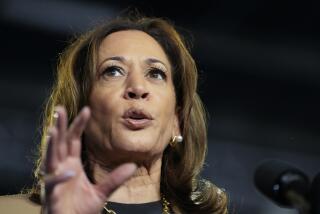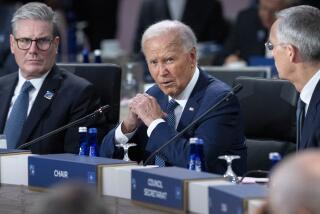McConnell’s health episodes show no evidence of stroke or seizure disorder, Capitol doctor says
The U.S. Capitol physician says 81-year-old Republican leader Leader Mitch McConnell’s recent health episodes show no evidence of being a stroke or seizure disorder.
WASHINGTON — Senate Minority Leader Mitch McConnell’s health episodes show “no evidence” of being a stroke or seizure disorder, the Capitol physician said in a letter Tuesday, offering little further explanation for the freeze-ups while speaking that have drawn concerns about the 81-year-old’s situation.
McConnell’s office released the letter from attending physician Brian P. Monahan as the Senate returned from an extended summer break and questions mounted over the Kentucky Republican’s health. The senator suddenly fell silent last week during a news conference in his home state, unable to respond to a question, the second such episode in a month.
“There is no evidence that you have a seizure disorder or that you experienced a stroke, TIA or movement disorder such as Parkinson’s disease,” Monahan wrote, using the acronym for a transient ischemic attack, a brief stroke.
The doctor said the assessments entailed several medical evaluations, including a brain MRI and “consultations with several neurologists for a comprehensive neurology assessment.” The evaluations came after McConnell fell and suffered a concussion earlier this year.
“There are no changes recommended in treatment protocols as you continue recovery from your March 2023 fall,” the doctor said.
After last week’s freeze-up, the attending physician to Congress cleared McConnell to continue with his planned schedule. McConnell arrived Tuesday at the Capitol office.
But the episodes have fueled quiet concern among Republican senators and intense speculation in Washington about McConnell’s ability to remain as leader. The long-serving senator fell and hit his head at a political dinner this year, suffering the concussion.
It all comes amid a swirl of health concerns in Washington, particularly as COVID-19 cases show signs of rising heading into fall. First Lady Jill Biden tested positive for COVID-19 over the weekend, but President Biden tested negative.
Many Republican allies have flocked to McConnell’s side, ensuring the famously guarded leader a well of support. Rivals have muted any calls for a direct challenge to McConnell’s leadership.
McConnell is expected to address the Senate as it opens for a flurry of fall activity, most notably the need for Congress to approve funding to prevent any interruption in federal operations by Sept. 30, which is the end of the fiscal year.
Some House Republicans are willing to shut down the government at the end of the month if they are unable to enact steep spending restrictions that go beyond the agreement Biden reached with Republican House Speaker Kevin McCarthy of Bakersfield in May.
In leading Senate Republicans, McConnell is viewed by the White House and Democrats as a potentially more pragmatic broker who is more interested in avoiding a messy government shutdown that could be politically damaging to his party.
McConnell has also made it a priority to ensure that Ukraine continues to receive support from the United States as it battles Russia in a grinding counter-offensive. McConnell visited Ukrainian President Volodymyr Zelensky in Kyiv in May.
A $40-billion funding package for Ukraine and U.S. disaster relief for communities hit by fires, floods and other problems, including the fentanyl crisis, is being proposed by the White House, but it is being met with skepticism from some Republicans reluctant to help in the war effort.
McConnell’s health has been scrutinized since the concussion in March, after which he took some weeks to recover. His speaking has been more halting, and he has walked more slowly and carefully.
First elected in 1984, McConnell became the longest serving Senate party leader in January. The question posed to him when he froze up last week was about whether he would run for reelection in 2026.
McConnell had been home in Kentucky at the time keeping a robust political schedule, speaking frequently to the public and the media. Before the episode last week, McConnell had just given a 20-minute speech with no issues.
Similarly, when he froze up during a news conference at the Capitol in July, he took a short break in his office and then returned to microphones to field about a half-dozen other questions and banter with reporters.
More to Read
Get the L.A. Times Politics newsletter
Deeply reported insights into legislation, politics and policy from Sacramento, Washington and beyond. In your inbox three times per week.
You may occasionally receive promotional content from the Los Angeles Times.











